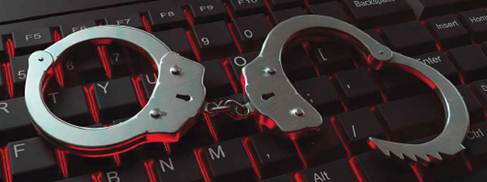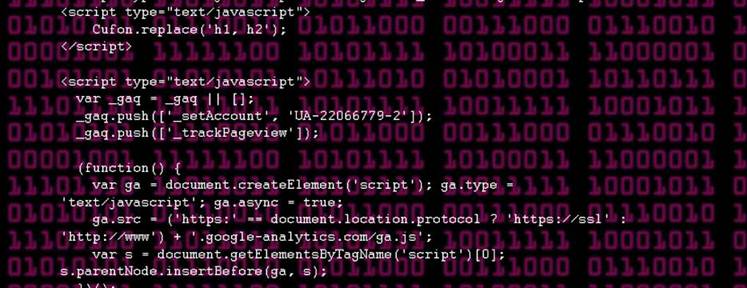Coming soon - prosecutions with only 20 days
to appeal, and you might not even be the copyright infringer
In the dying days of the Labour government,
Lord Mandelson ushered in a law enabling Internet users to be cut off for
receiving mere allegations of copyright infringement-the Digital Economy Act
(DEAct). In a foretaste of the later protests against SOPA, PIPA and ACTA, this
offensive piece of legislation became the focus of widespread protests. The
outrage wasn't just about the law itself: it was also about the way it was
rammed through, with little democratic scrutiny.

The
digital economy act: back from the grave
How could Parliament push forward such a
crude and ill-thought out proposal? How did commercial lobbyists from the
entertainment industry gain such a stranglehold on political power? The
entertainment industries' key lobby groups, especially the International
Federation of Phonographic Industries, has been pushing for 'three strikes'
legislation around the globe for many years. These pushes were part of a
build-up to legislation in the USA, which culminated in the SOPA and PIPA
proposals for broad controls on the Internet and new censorship tools.
Similar legislation has been proposed in a
number of countries too, reaching the statute books in New Zealand, France and
South Korea, as well as the UK. However, many other countries rejected the
idea, including Germany, and attempts to introduce it through the EU also
failed. The industry can't realistically hope to introduce a law such as this
in the USA, so instead, it has tried to persuade ISPs to introduce it through
contract with end users.
The IFPI and its local UK branch, the BPI,
argue that they need to be able to punish and deter illicit downloading
('online copyright theft'). They say that users must be dissuaded from sharing
or acquiring files without payment. They claim that investment won't be
forthcoming unless action is taken to reduce infringement.
They also state that the UK digital market
grew by nearly 25 per cent in 2011, and that many digital services are
delivering new and exciting products to their customers. According to the IFPI,
peer-to-peer (P2P) infringement is declining in France, and digital sales have
increased more than expected. Others claim that the main impact on infringement
has been to shift it around, primarily to streaming websites, which is harder
to detect robustly.
Working through industry statistics is
notoriously difficult, but one fact is clear; digital revenues in both France
and the UK rose in 2011, while only one of these countries was sending letters
to alleged infringers. That implies that the DEAct may well not be necessary,
but that doesn't seem to be worrying the government.
Rather, the government's main concern seems
to be honoring the commitment made to the music and film industries to
implement the Act. So far, that has been very difficult. Internet protesters
weren't the only group that was unhappy with the new Act. ISPs, especially BT
and TalkTalk, stated that they didn't want to act as the Internet police,
administering rough justice to their customers, while bearing unwarranted
costs.

ISPs,
especially BT and TalkTalk, stated that they didn't want to act as the Internet
police.
Thus they challenged the Act through a
Judicial Review (JR), which helped to delay implementation for about two years,
although the poor drafting of the Act has also contributed to the delay. The
Act is implemented through 'Henry VI11' clauses-sweeping powers to draft
secondary legislation (Statutory Instruments, or SIs), which would normally
receive only minimal scrutiny in Parliament.
Drafting errors meant that the original SIs
had to be resubmitted, and now that the real SIs are going to be submitted for
what the government hopes is a final time, problems are continuing to emerge.
Parliamentary scrutiny committees are asking questions - extremely unusual for
this type of legislation, which is meant to be used for unimportant administrative
actions. Unfortunately, for the hundreds of thousands of families and
businesses that will receive letters, the Initial Obligations Code, 'Costs
orders’ and 'Appeals’ won't be unimportant. They could well be disturbing and
require swift action.
The copyright lobbyists have pushed hard to
make sure few people appeal, claiming that people may campaign to stop the Code
from working by bombarding it with appeals. As a result, only 20 days is being
given to appeal, which will be challenging for many people, who won’t
understand what it all means.
The copyright owners have a significant
financial interest in limiting the numbers of appeals, as they’ll be paying
around $600 to administrate each one. This illustrates the inadequacy of
semi-privatized judicial processes in this case. Access to justice shouldn’t be
limited by finances.
The process will also threaten open Wi Fi.
Although commercial Wi-Fi is exempted, hotels, bars and cafes are still at risk
if they share their normal ISP connection with customers. Libraries are also
campaigning strongly, but they’ve been given little comfort.
This will now take years to get into
operation. Meanwhile, music and film revenues keep increasing, but will the
pressure to limit and control the Internet reduce? Lobbyist and governments
still want the Internet to be more like cable TV, often willing to push
inappropriate restrictions that damage a strong and growing part of the economy
These pushes have created backlashes in the SOPA, PIPA and ACTA debates,
showing that we can win. By the time the Digital Economy Act is in operation,
it will seem like a policy from another, long gone era. The DEAct is still a
mess.
How it works
Detecting Peer-To-Peer
Copyright holders employ private companies
to detect P2Pfilesharing.
The private companies download a copy of a
shared file. They verify if it’s a copy of a work whose copyright is held by
their employer.
The copyright owners 'lurk’ on the P2P
network, and ask for parts of the file from other users. They take parts of the
copyright file from other users, verify that it matches, and record the IP
address and time. This should show that a file is being actively shared by
someone-who could be anyone-at that IP address.
The initial obligations code

Copyright owners will guarantee to send a
certain number of letters: they receive big volume discounts, so it will make
sense to send a lot. They’ll pay 75 percent of the total costs, and the sum is
non-refundable. This also encourages the copyright
groups to band together for bulk discounts.
Copyright owners supply the IP address and
timestamp of the alleged infringers. ISPs match these against their records to
find out whose account was used. This doesn’t identify an actual infringer, of
course - just the account holder.
Once a notification is lodged against an
account, a warning letter is sent by post. Warnings are sent at intervals of at
least one month.
Each warning letter allows the account
owner to appeal against the infringement notifications.
There are only20 days to seek advice, prepare
documents and file an appeal. The appeal costs $40, which is refundable if it’s
won. The grounds of appeal have been narrowed, and the catch-all, 'any other grounds’, has been removed, limiting discretion of
the appeals body.
The appeals will cost around $600 each to
administer. The cost is borne by the copyright holders.
If three warnings from the same copyright
holder have been lodged, the account is then placed on a 'repeat infringers’
list, to which copyright holders can claim access in order to prosecute account
holders.
There is an exemption for UJ commercial
Wi-Fi operators such as The Cloud, but not for small businesses or libraries
with their own Wi-Fi network for customers.
The future - disconnections?
If Ofcom doesn’t report a significant drop
in infringement, the government can add new obligations to disconnect accounts
for a period of time, or limit access in other ways.